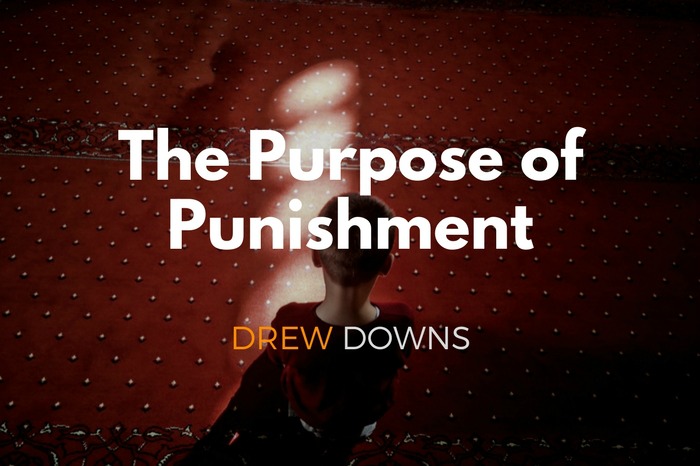We want punishment to communicate what it can’t. It’s bad at telling us what not to do and fails to tell us what to do. Punishment isn’t the point.
The purpose of punishment is to communicate our intolerance of certain behaviors.
It is not about feeling good
exorcising our demons
stealing the dignity of others
Arguably, the whole purpose of punishment is “to make a point of someone.” Even if we’re making that point to the someone who did it.
Ill Communication
Almost all of the research into discipline shows that punishment isn’t very effective in influencing behavior. In other words, it does a poor job of communicating.
So many of us don’t want to face it, though. We ignore the truth and live in a state of denial.
But it makes sense if we actually think about it.
When I screw up and you catch me, my mind isn’t really on me. It’s on us. I’m embarrassed because now there’s something between us. And I’m starting to worry you’ll do something to me. So the focus remains on us rather than on what I did or what you feel. I worry about our relationship in the now. I am thinking about what is happening now. Not what led to now.
And if you choose to teach me a lesson—make me sleep on the couch or go get my own damn cheeseburger—do I actually learn from the lesson? Do I suddenly know what words I should use with you or what gift would have made you happy?
Have you shared the hopes for our relationship or the way things will work better in the future?
Instead, I know that you’re pissed at me. And I’m getting pissed at you.
Divided Punishments
I find myself mostly frustrated by our present public conversations. It seems we’re so eager to punish, we don’t realize we aren’t communicating what we think we are.
If the problem is sexual harassment and assault, then focusing on getting a public official to resign shouldn’t be the goal. It needs to be the baseline. And it shouldn’t be one, it must be all. Partisanship shouldn’t be an excuse. For “us” or “them”.
And if it isn’t enough to derail a candidate for election, then we need to mind that the baseline is being compromised. So if we’re doling out punishments, that should be one too. The people who put party over pedophilia reinforce the systemic problem. That behavior needs to be corrected, too.
Because somehow, we’re running law-breaking through the party-filtering Left/Right Sorting Machine.
The Wrong Tool
Punishment isn’t the only tool in a person’s toolbox. Parents, politicians, the people need more than a hammer in there. They need an assortment of screwdrivers, nails, bolts, tape measures, glue, and wrenches to deal with a variety of circumstances.
Trying to punish perverts is a lot like banning immigrants—it doesn’t actually reduce crime.
It’s only good for drawing the line. That’s why we need to keep explaining why that line is there.
Punishment doesn’t restore us.
To get that feeling of relief, we have to go well beyond punishment.
People aren’t set free when they watch their abusers die by lethal injection. It doesn’t bring catharsis. We don’t make ourselves whole by indulging that impulse of revenge. We think it will. We’re wrong.
I wonder if its intoxicating and hormonal to get revenge. Is it like the lust of first attraction—the electricity of the moment we assume is love? Are we so fooled by the rush of vindication we don’t recognize the emptiness we still feel at 3 am is related to this? Or the fear that this wasn’t real? Or worse, the fear that we’ll never feel whole again?
So we lie. Over and over. We lie to ourselves so we can lie to others. That we’ll be fine if that person gets punished—that one needs to pay so I can be whole again!
It’s all delusion. Like the delusion that corporal punishment teaches better behavior and capital punishment reduces crime. Statistics prove the opposite.
Punishment doesn’t restore or build or teach by itself.
It’s the hammer and only the hammer. And sometimes the hammer is exactly the tool you need. So you reach into the toolbox for it. But don’t think the hammer is the only tool for communicating in our society, fixing our problems, or teaching our kids.
Punishment helps establish the baseline. And nothing more.
If you want to rise above that, you need love and hard conversations and to share your feelings. The very sorts of opportunities toxic masculinity silences in our society and toxic churches revile. But it is the very substance of sharing food, giving gifts, and listening deeply.
True transformation means rising above punishment. It demands honesty in a world of delusion. In our world, especially now, such honesty is truly radical. But it’s enough to change everything.

